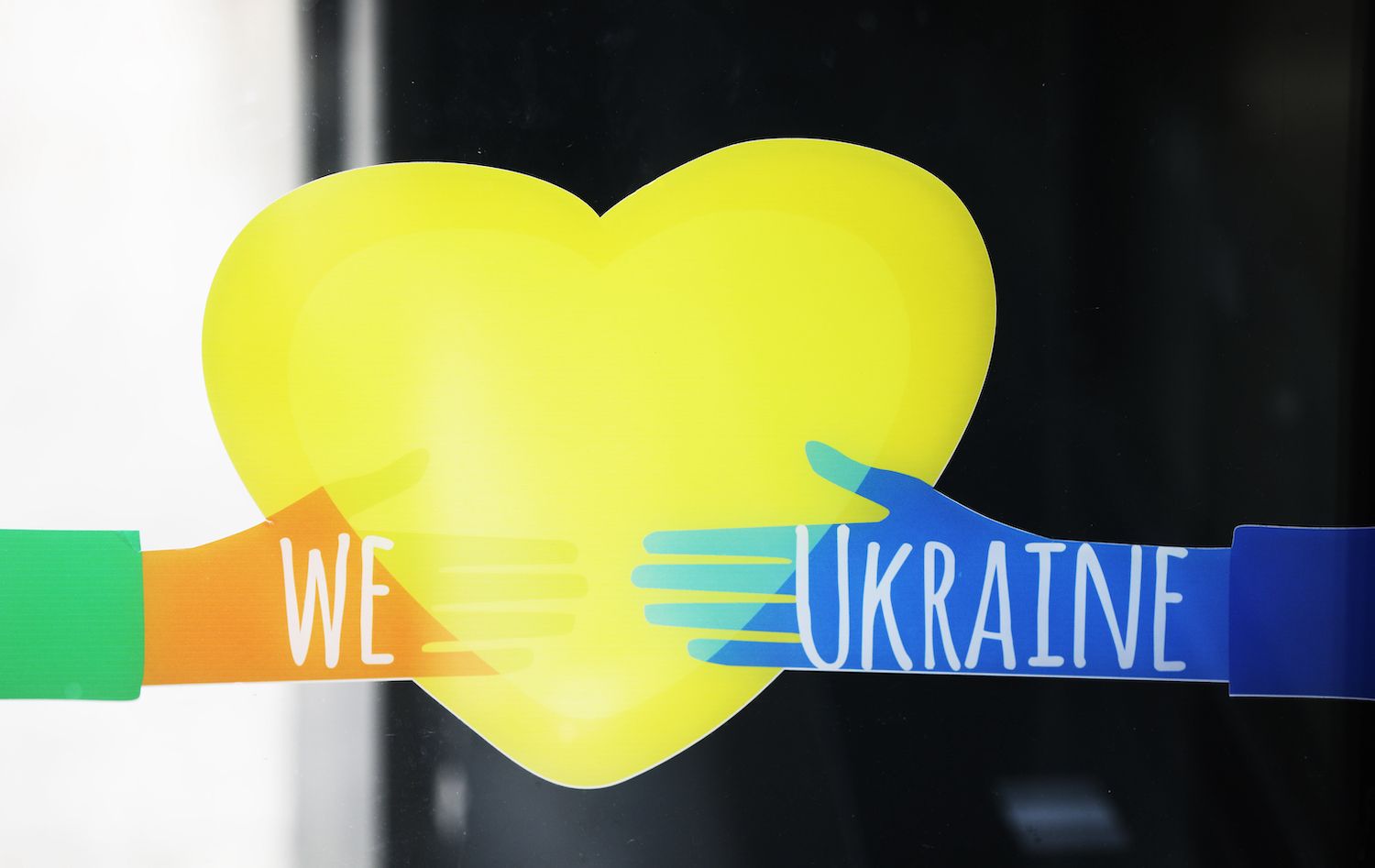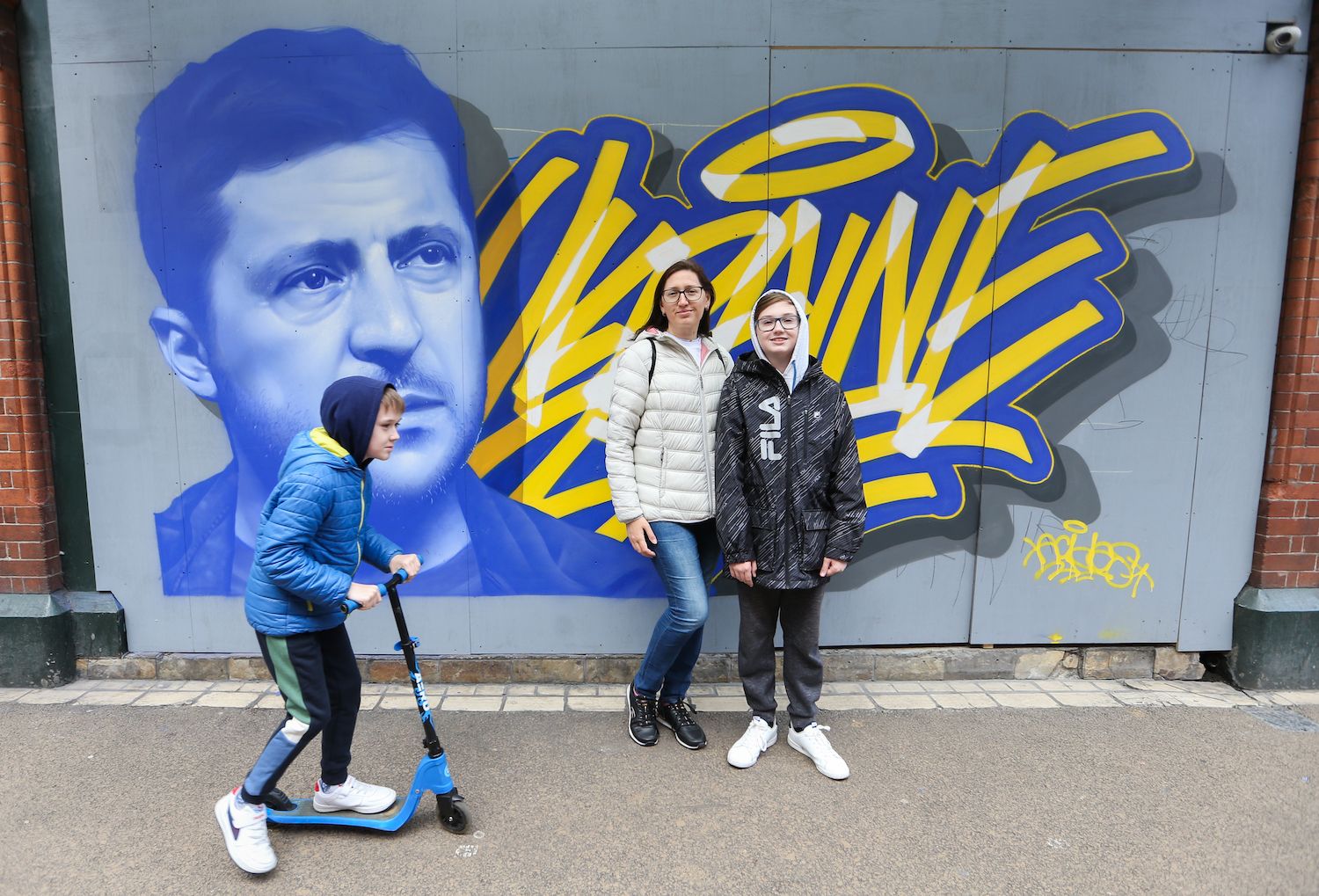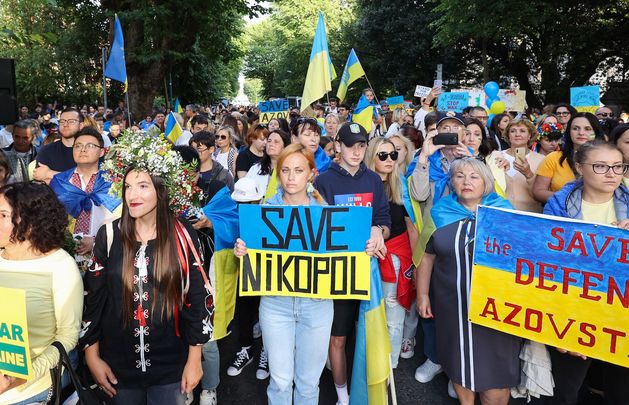What do Ukrainian refugees think of Ireland? Columnist Michael O’Dowd talked with a group of them about the ups and downs of their new Irish lives in the wake of the Russian invasion.
As of February 1, Ireland was accommodating over 74,000 refugees in state-funded accommodation. This is 10 times the number we were dealing with at the same time last year.
The figure includes 53,700 beneficiaries of temporary protection fleeing Ukraine. This by no means is the total figure from that country as thousands of refugees from the war with Russia sourced private accommodation through family, friends and various networks.
With the Irish population showing a measure of refugee fatigue, I had breakfast with a group of eight Ukrainians, six of whom were women, who had fled the conflict to discuss with them their experience to date in Ireland.
While the level of English among the participants was good, I was told that in general there is a problem with the language. This is despite the fact that the Irish government has made extensive classes available.
It is not the only linguistic problem though, and I was surprised when I was informed that within the Ukrainian community, there is a heated debate as to which language to use on social media, principally Telegram. All are fluent in Russian but the same is not true about their own Ukrainian language. Despite this, I was told that the use of Russian is frowned upon by some.

A message of support at Palyanytsya Ukrainian shop in Dublin.
The tales they told in relation to their decision to move here were both painful and tragic. Bags containing essential provisions were packed in advance hoping that they would not be necessary, but when war sirens woke them in the middle of the night there was no choice but a quick evacuation for those in the eastern part of the country.
Homes, vehicles, possessions but most heartbreaking of all family and friends were left behind as they fled. Pets were missed as well, and I was shown a range of photographs and videos of dogs and cats that had to be abandoned.
Ireland was chosen for a variety of reasons, including recommendations of family or friends who had previously traveled here, and the reputation of the Irish. But a deciding factor for some was news of the generosity of the Irish government’s initial refugee response including housing, medical attention, social welfare payments, and mobile phones which spread among those leaving Ukraine.
The Ukrainians I spoke to have been overwhelmed by the positive response they have received since they arrived here. Most of them, it must be said, were in the first wave that came almost a year ago. The welcome of the Irish people was appreciated by all, being described as good-humored, considerate, and very generous.
I asked them to outline what they found puzzling, challenging, or different about their adopted country. Despite the fact that they all had a place to live, accommodation was still a real worry with concerns from those living in hotels about being evicted once the tourist season starts.

A mural of Ukrainian President Volodymyr Zelenskyy in Dublin.
More concerning, however, was the situation of one mother who came to Ireland with her teenage daughter who now has to share a bedroom with a different family and their teenage son. Another mother spoke of sharing a hotel room with four other members of her extended family with no bathroom. It’s far from ideal and is a ticking timebomb that will need to be addressed soon to protect the most vulnerable.
Paradoxically, given the speed of the initial government response, a major frustration lies with bureaucracy. So, for instance, opening a bank account, getting a driver’s license, or getting an account with an electricity provider all take a lot of time, effort, and red tape.
Add in the language barrier and it's clear why there is real exasperation. In fairness, many public service organizations have published guides in Ukrainian, but the hoops to jump through still remain the same whatever the vernacular.
Among other problems, there was also criticism of the postal system which they said was extremely slow compared to what they were used to and was true whether it was mail or parcel delivery. For the parents of young children who attended the breakfast the lack of playgrounds came up, while all agreed the effective closure of the town center at 6 p.m. every day was new to them coming as most did from large cities which remained open until late at night.
A building engineer at the breakfast expressed bewilderment at the faucets in our public toilets and homes. Separate hot and cold taps are unheard of in Ukraine, and the system here was a source of some amusement.
When I asked what they missed most about life in Ukraine, aside from family and friends, the answers were varied. One parent said her children missed their big house and car which sadly had been destroyed in the war. Another said it was familiar sights and sounds, while a third said poignantly that it was her favorite mug. She had literally lost everything.
If there were negatives then there certainly were positives. While the parents still insisted that their children attended online Ukrainian schools along with local schools, the Irish education system came in for high praise, especially the commitment of the teachers.
From one end of the age spectrum to the other, one parent got very emotional as she contrasted the plight of the elderly in her country with senior citizens in Ireland. At 60 she said the majority had little to look forward to in Ukraine with small pensions, whereas in this country active citizenship was encouraged and facilitated.
They were all very envious of the work-life balance in Ireland, with work days of up to 14 hours being common in their own country. Wages were much lower there as well, and all agreed that their country was a great deal more corrupt.
Particular venom was reserved for the Orthodox Church which they claimed was driven by money rather than morality. I suspect their views were colored by the position of the Russian Orthodox Church in supporting Vladimir Putin.
Will they stay here or return home? Again, geography plays into current thinking.
Those from war-ravaged areas accept that in the medium-term, Ireland will remain their home, and thoughts are turning to secure full-time employment. Those I had breakfast with, from central and eastern Ukraine, are hopeful that they can return to their homes once the war is over.
All know that things will never be the same and that part of their lives will be forever influenced by the people they have met and their experiences here in Ireland.
*This column first appeared in the February 15 edition of the weekly Irish Voice newspaper, sister publication to IrishCentral. Michael O'Dowd is brother to Niall O'Dowd, founder of the Irish Voice and IrishCentral.




Comments